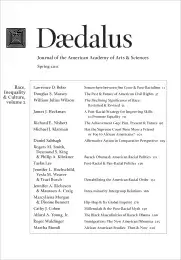Controversial Blackness: The Historical Development & Future Trajectory of African American Studies
The election of Barack Obama as president of the United States has prompted some observers to assert that the nation has overcome its history of white supremacy and moved into a “post-racial” era, making continued attention to race and racism passé and unnecessary. Radio and television host Tavis Smiley posed this provocation to his guests in a 2009 radio special on the fortieth anniversary of African American studies in American colleges and universities. He asked, is African American studies still necessary in the age of Obama? Eddie Glaude, Elizabeth Alexander, Greg Carr, and Tricia Rose–chairs of African American studies departments at, respectively, Princeton University, Yale University, Howard University, and Brown University1–each articulated important themes in the intellectual tradition of African American studies. Thus, their discussion is a useful lens through which to explore key themes in the historical development and future trajectory of the field.
Eddie Glaude and Greg Carr captured two truths about the history of African American studies. Glaude noted its origin in black student activism of the 1960s. The upsurge of campus activism in 1968 and 1969 was a critical component of the broader black freedom struggle. In contrast to the media-driven notion that Black Power was merely a slogan lacking concrete application, black college students successfully turned the concept into a genuine social movement. On some campuses . . .
